Quantitative Analysis: Its Role, Methods, and Importance in Business
VerifiedAdded on 2023/06/10
|16
|1133
|94
Essay
AI Summary
This essay provides a comprehensive overview of quantitative analysis (QA) and its various applications in business management. It defines QA as a technique employing statistical and mathematical modeling to understand behavior and represent reality numerically. The essay explores how companies utilize QA expertise to solve problems through simulation, linear programming, and forecasting, emphasizing its role in business decision-making. It details various QA techniques such as mathematical programming, cost analysis, cost-benefit analysis, linear programming, capital budgeting, inventory management, and simulation, explaining their functionalities and benefits. Furthermore, the essay highlights the importance of QA in providing scientific analysis, aiding in optimal strategy selection, and offering tools from operational research, mathematics, statistics, and economics for accurate problem-solving, free from managerial bias. The document concludes by referencing relevant studies that support the discussed concepts and applications.
1 out of 16
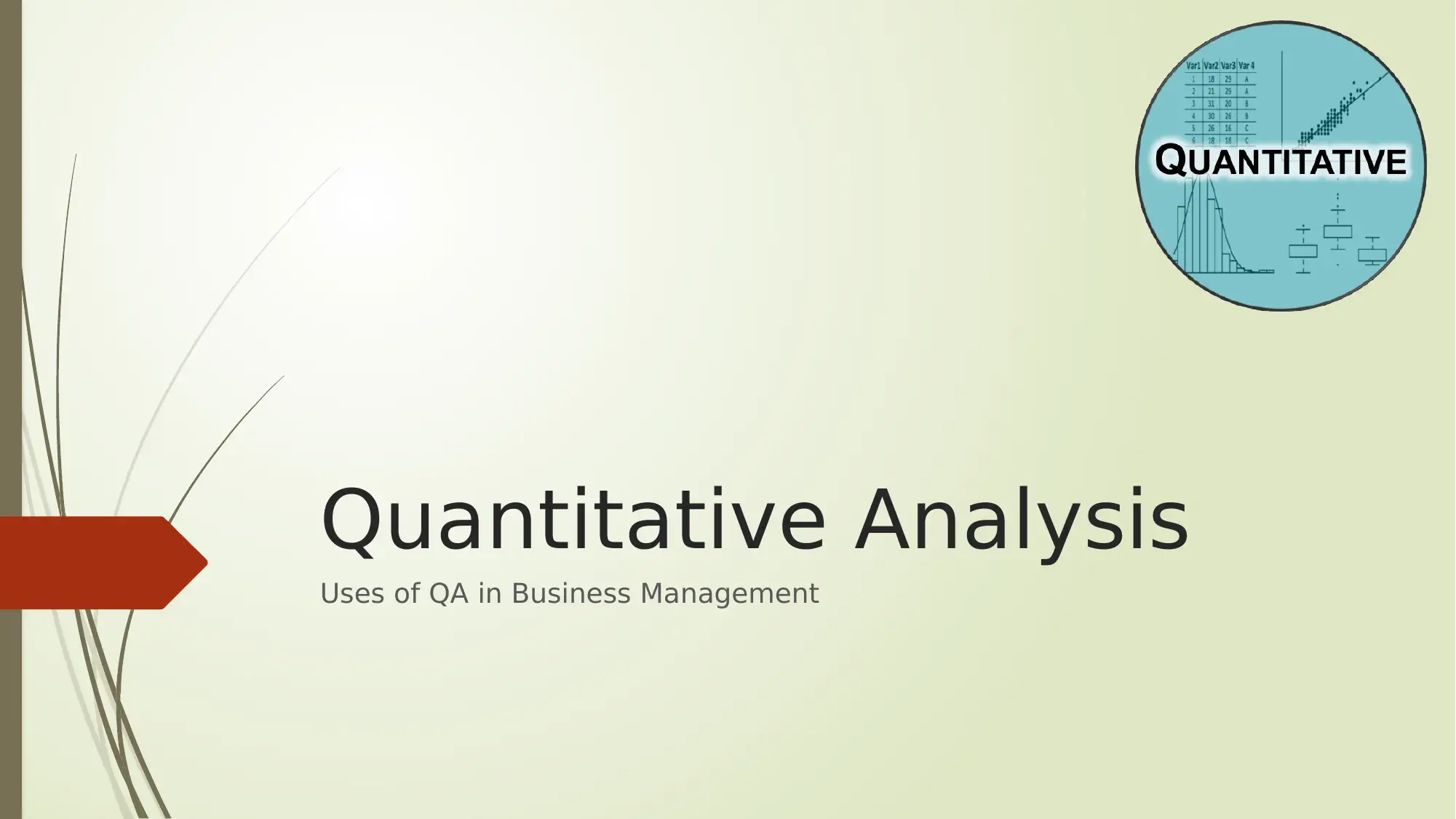
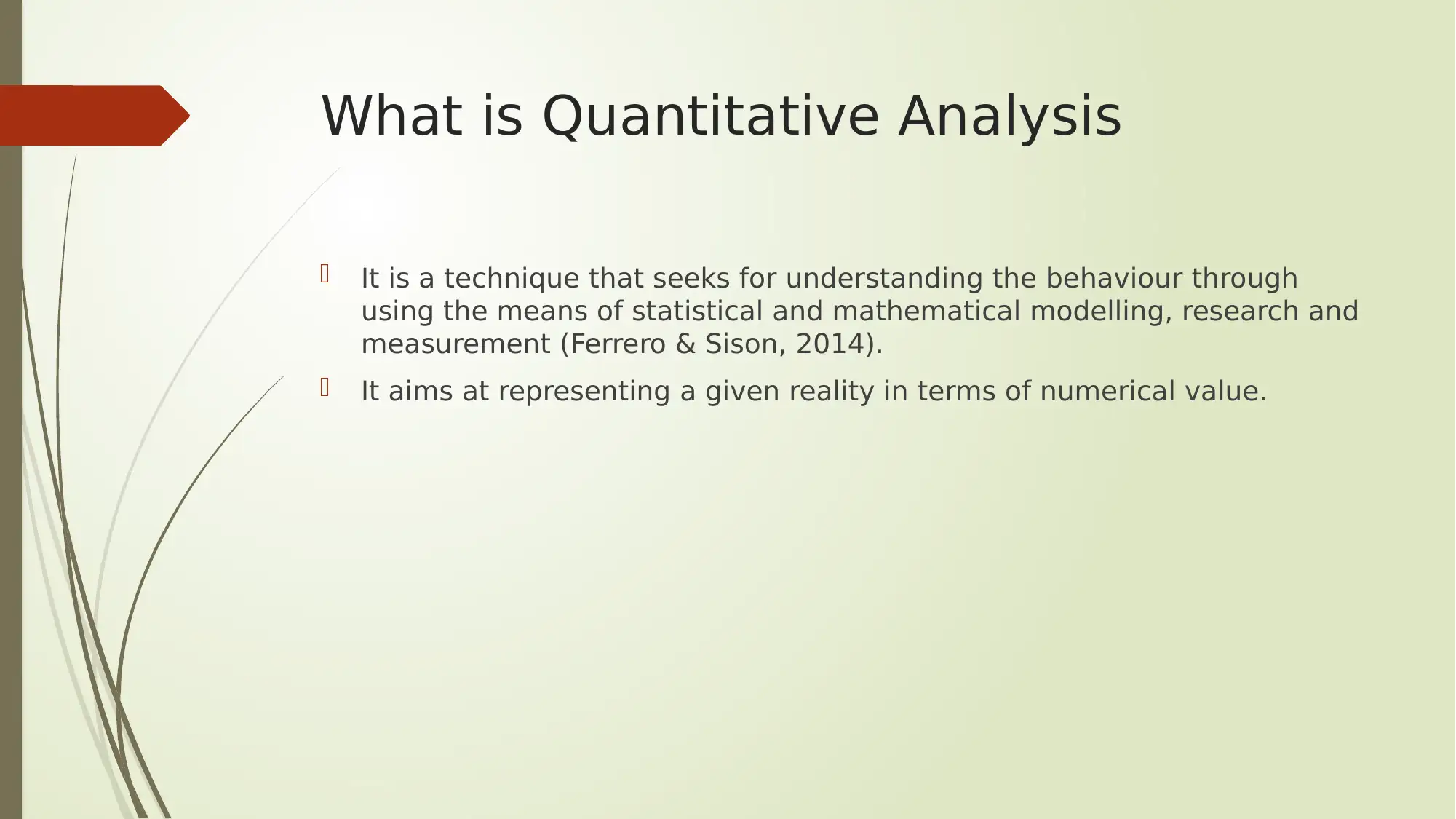


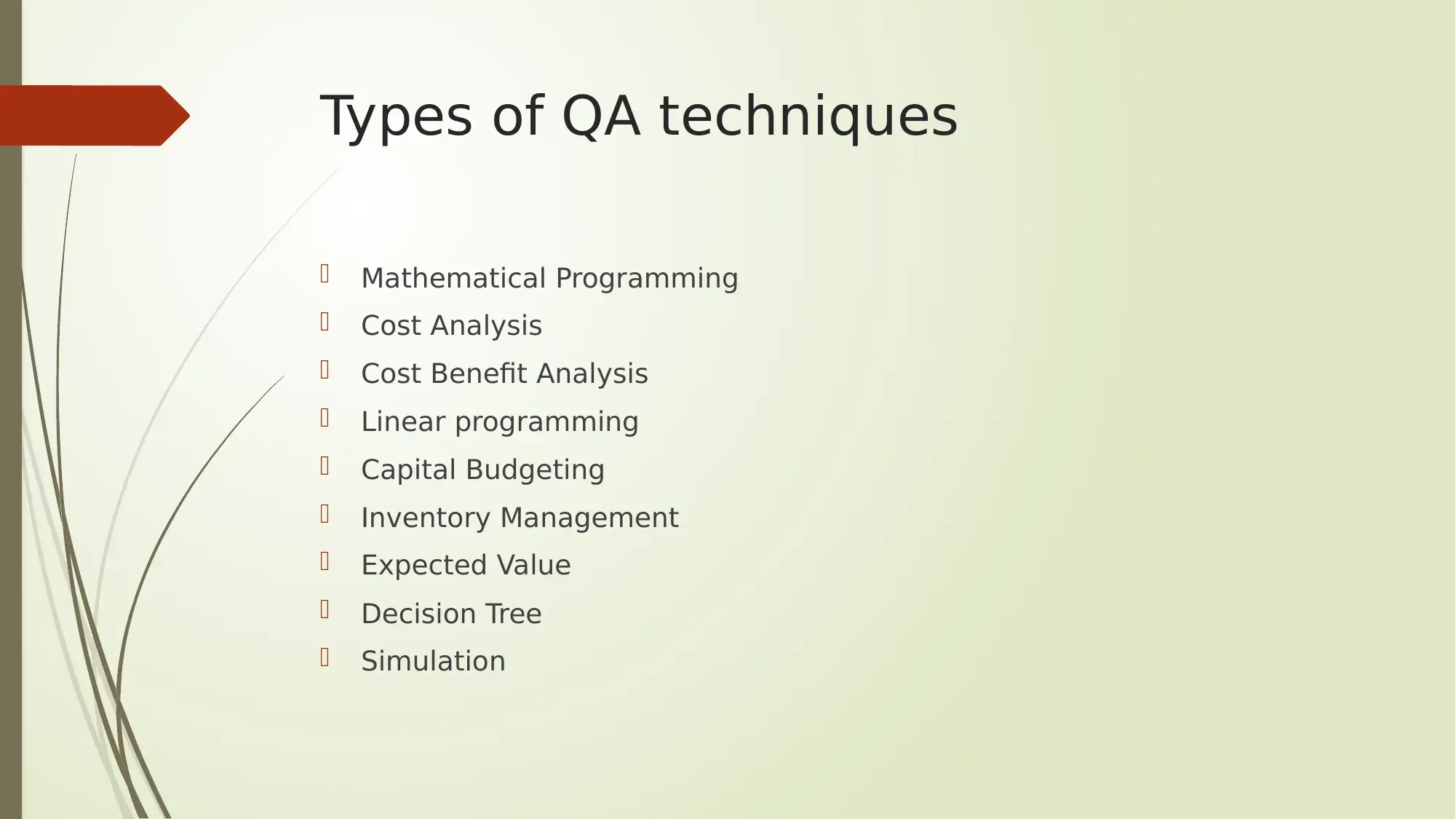

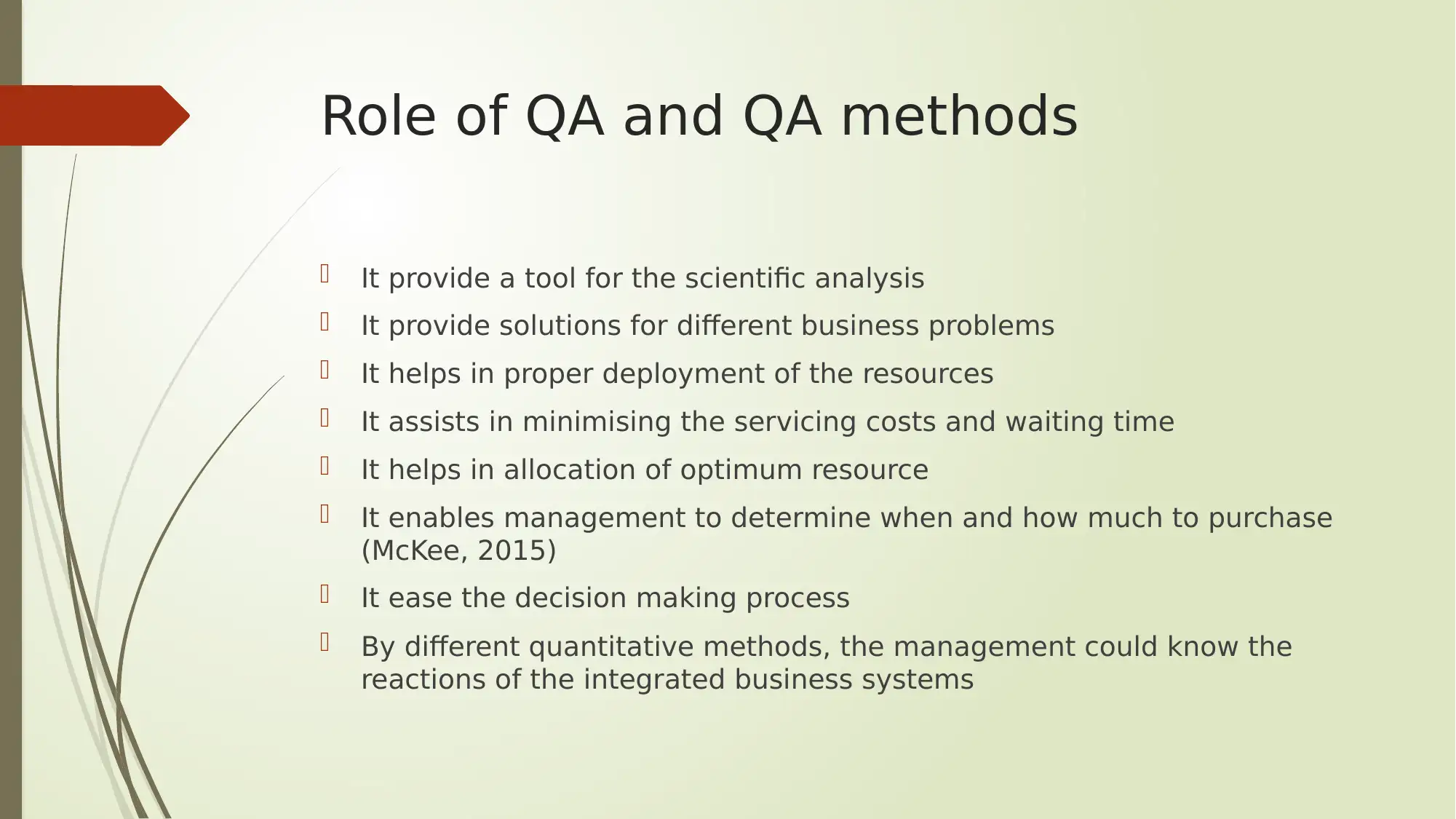
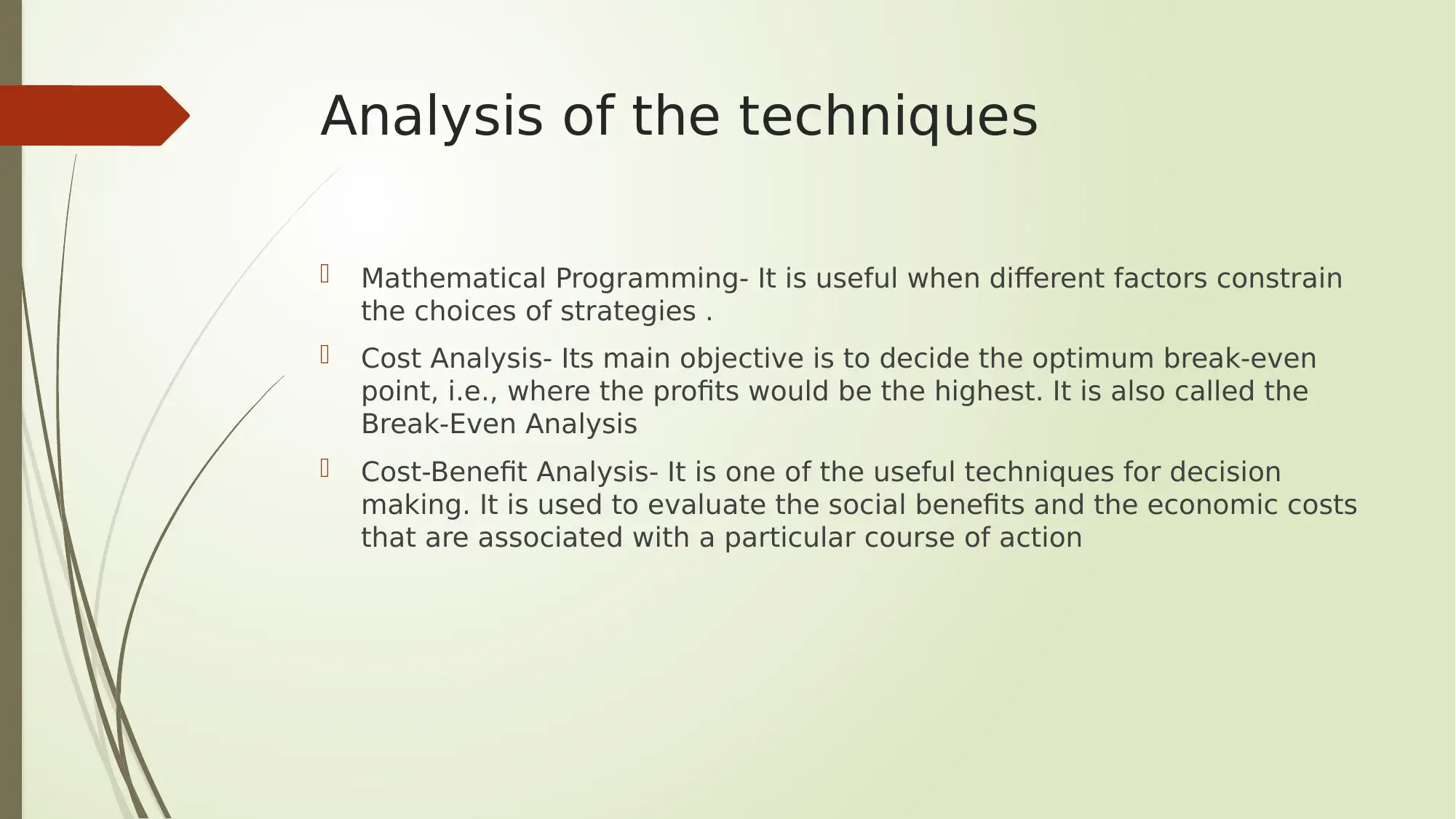
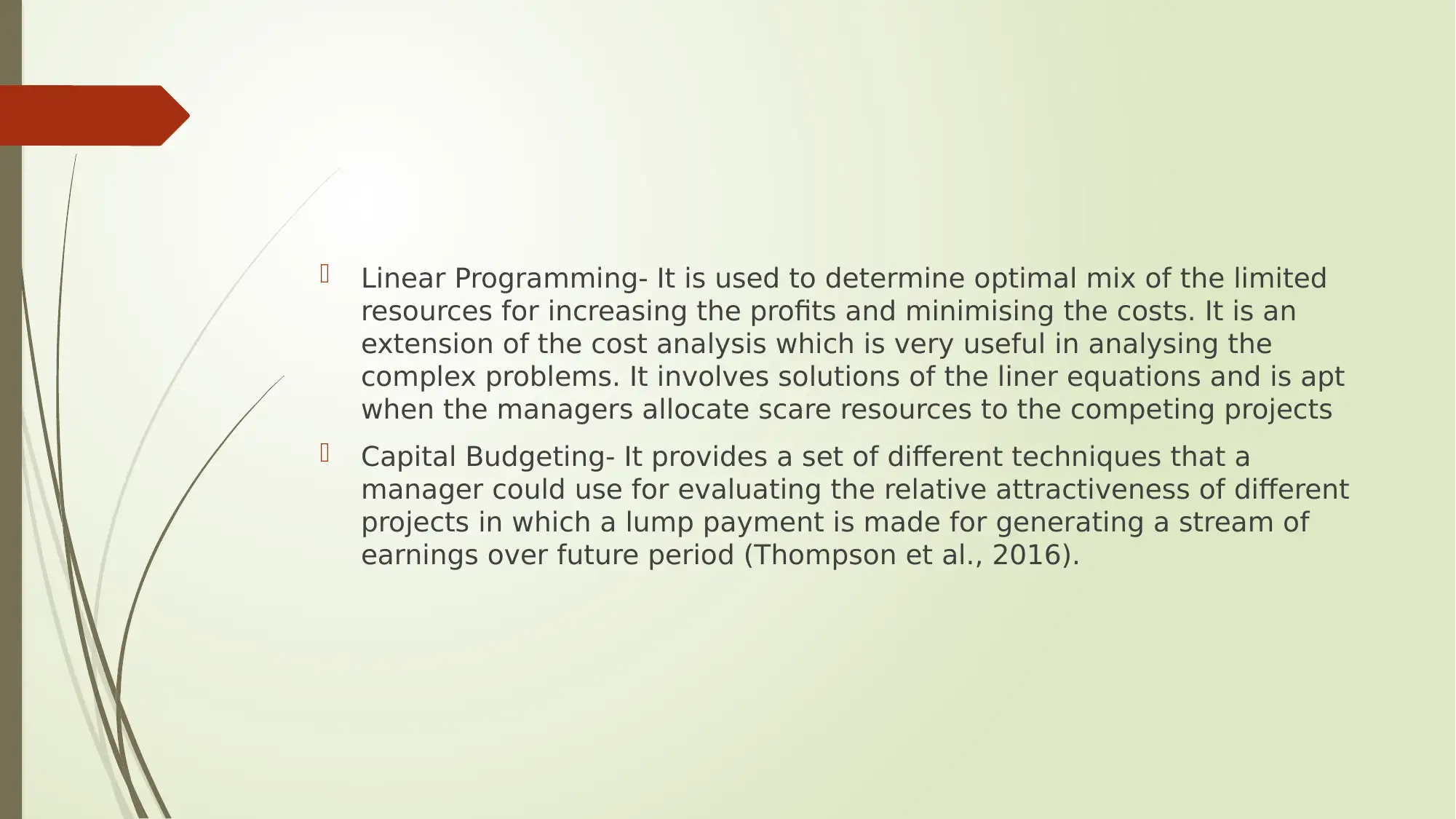
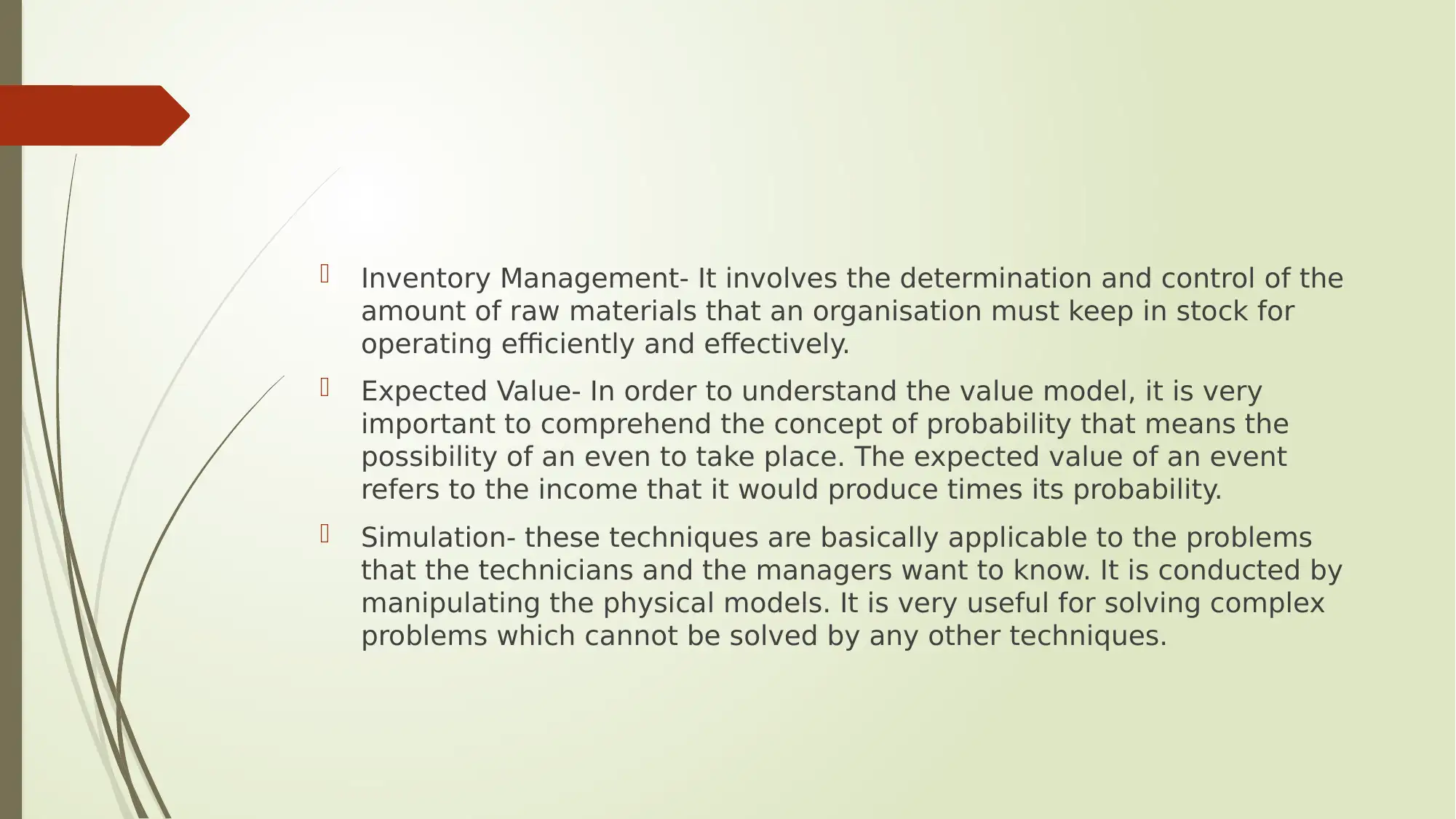
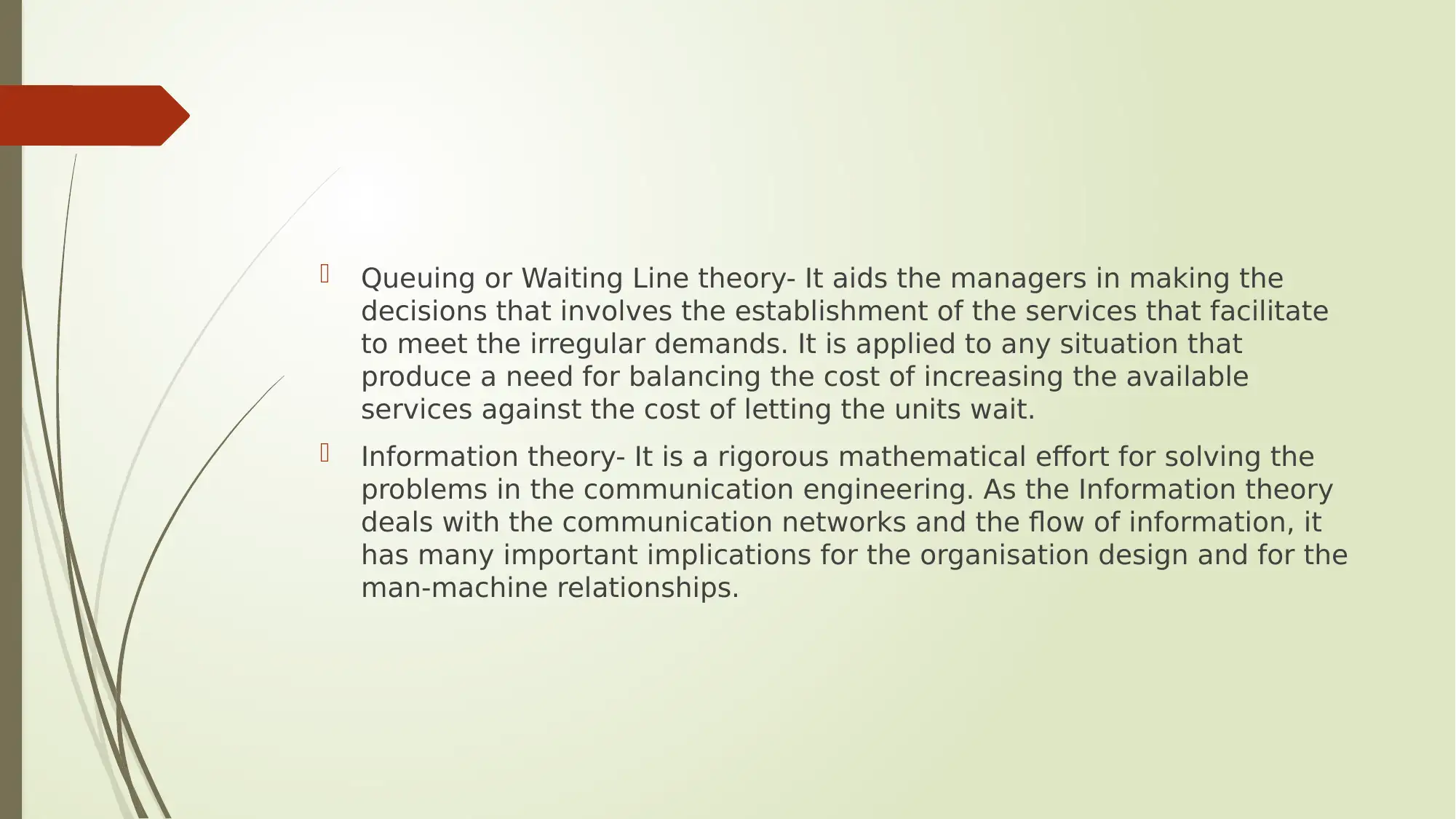
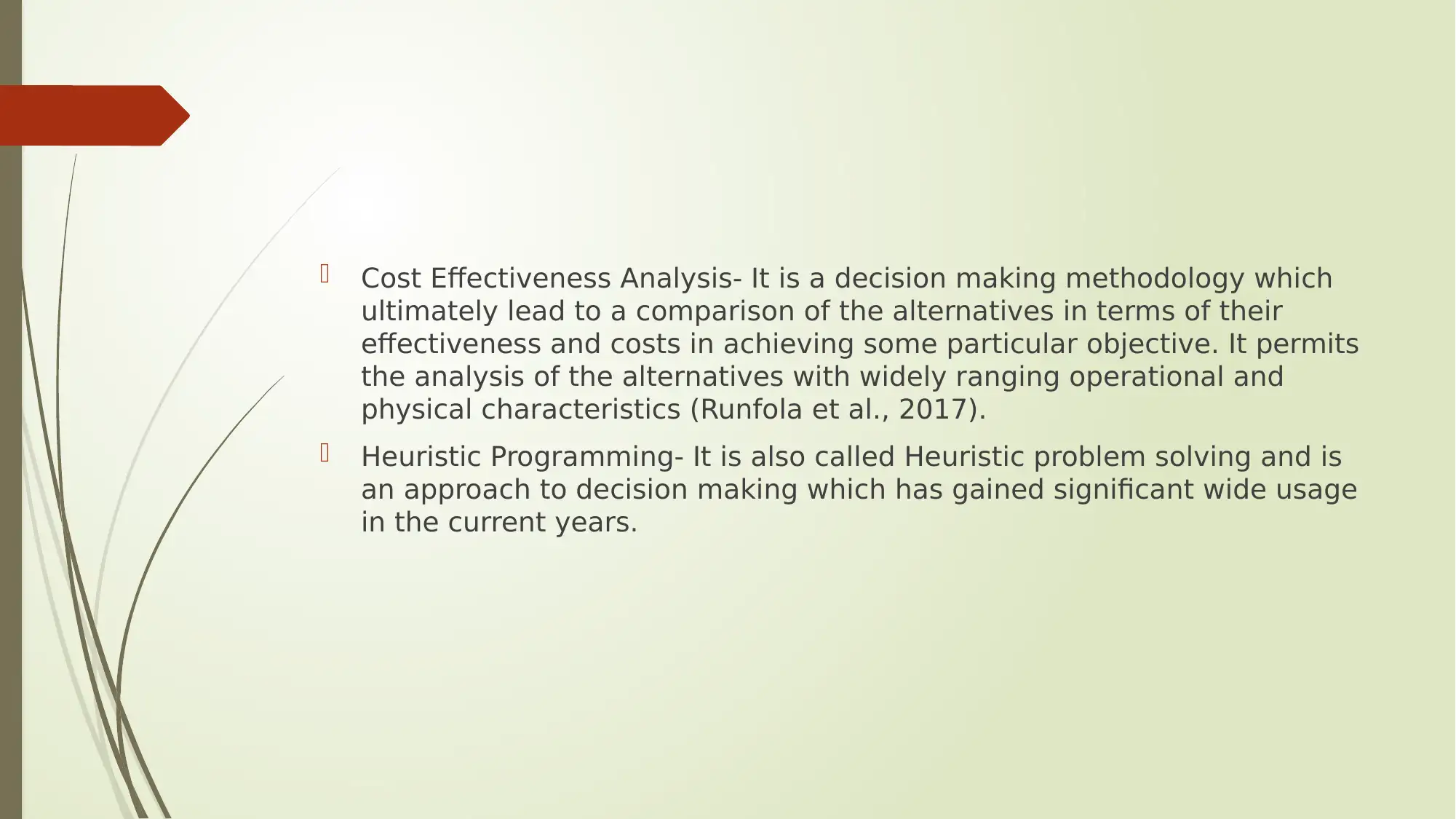
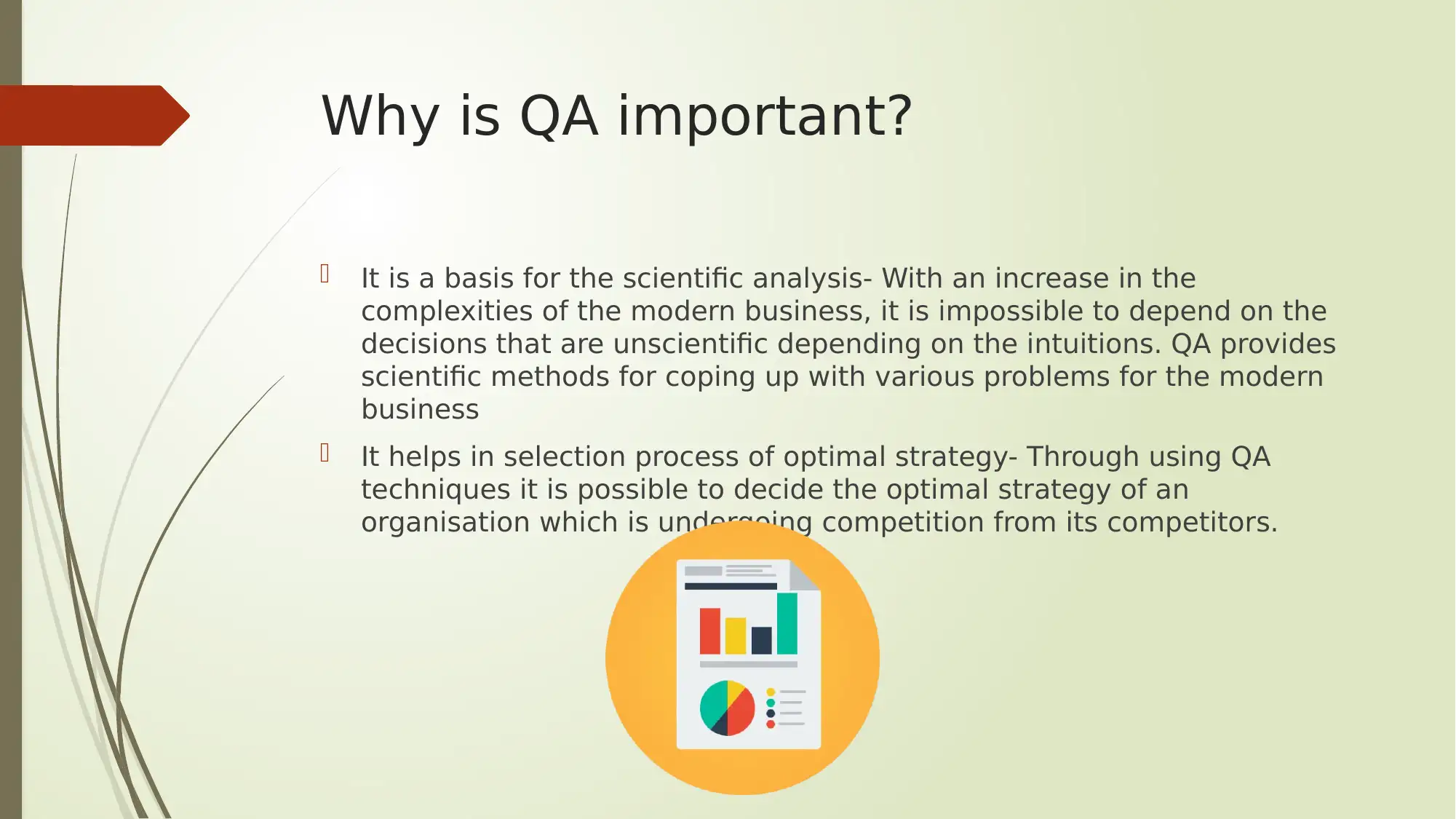






![[object Object]](/_next/static/media/star-bottom.7253800d.svg)